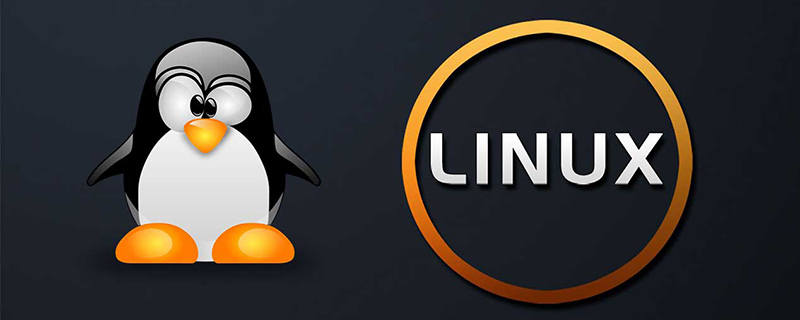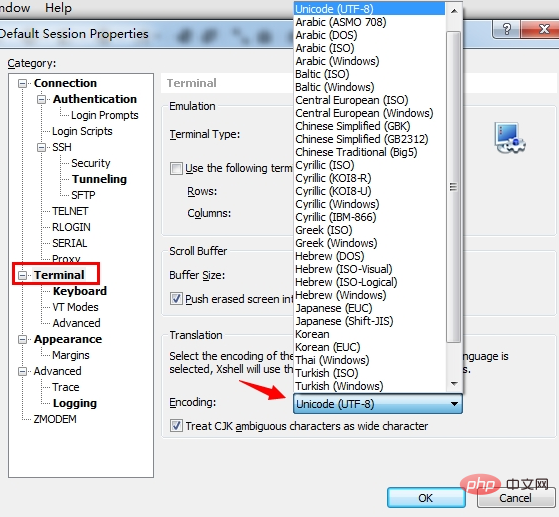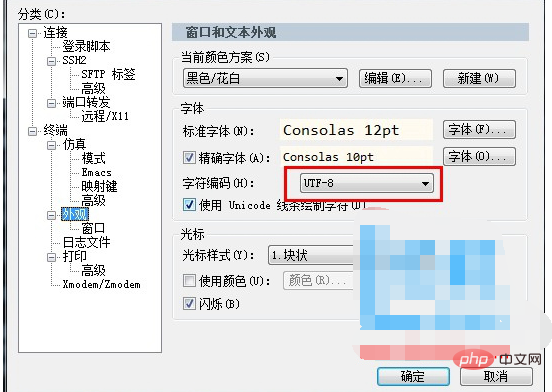 Operation and Maintenance
Operation and Maintenance
 Linux Operation and Maintenance
Linux Operation and Maintenance
 What should I do if Linux displays garbled characters?
What should I do if Linux displays garbled characters?
What should I do if Linux displays garbled characters?

What should I do if Linux displays garbled characters?
Linux terminal displays garbled Chinese characters
Today, we will help our students solve the problem of garbled Chinese characters. This is a problem that worries domestic Linux users. Since most Linux distributions are mainly in English, and English is better than Chinese in terms of versatility and stability, and there are fewer strange bugs. Therefore, it is strongly recommended to use the English system.
We know that our operating system does not matter the Chinese version or the English version. Whether it is Windows or Linux, when the system is released, the whole world has the same kernel. Whether the system is presented to us in English or Chinese completely depends on it. for the language pack of your choice. People from different countries choose the language pack of their own country when installing and using it. The language in the application is not hard-coded. It calls the relevant language according to the system settings. Therefore, an application is written without modification. Users from different countries around the world can use it in their native language interface. This is the so-called internationalization, or i18n for short. This is also the development trend of future software.
So, if I install different language packs and different fonts in the system, how does the system determine the language interface I want and call the relevant fonts? What files and variables in the system control this?
Recommended: "Linux Tutorial"
You can use the locale command to view the character set used by default in the current system
1 |
|
Under RedHat/CentOS system , the file that records the default language used by the system is /etc/sysconfig/i18n. If the Chinese system is installed by default, the content of i18n is as follows:
1 2 3 |
|
The LANG variable is the abbreviation of language, which has a slight English foundation. Users can tell at a glance that this variable determines the default language of the system, that is, the system menu, the toolbar language of the program, the default language of the input method, etc. SYSFONT is the abbreviation of system font, which determines which font the system uses by default. The SUPPORTED variable determines the languages supported by the system, that is, the languages the system can display. It should be noted that since computers originated in English-speaking countries, no matter what you set these variables to, English is always supported by default, and no matter what font is used, English fonts are always included.
So how to display Chinese?
1. The system must have a Chinese language pack installed.
1 |
|
2. Just having a language pack is not enough. We have to set the corresponding character set.
1 2 3 4 5 6 7 8 9 10 11 12 13 14 |
|
Okay, after The above settings should be able to display Chinese on the terminal.
3. SSH remote terminal is garbled
If the SSH terminal is still garbled, then we also need to set the encoding of the terminal software.
Xshell:

SecureCRT:

4. What should I do if the terminal is still garbled in Chinese? ?
Set up the SSH software and select a font that supports Chinese.
Linux Windows need to modify files between each other, and then the files will be garbled.
After copying, I often find that the Chinese characters are garbled. . The reason is that the default file format in Windows is GBK (gb2312), while Linux is generally UTF-8. The more cumbersome method is to use a program to convert the content into UTF-8 encoding format under Windows, but it is quite troublesome, and it needs to be converted once a file is encountered. Let's introduce how to solve this problem once and for all in Linux, check the encoding of the file and how to convert the file encoding.
In order to avoid these problems, the best way is to uniformly encode. For text files, they are all saved in UTF8 format. Do not use word or notepad under windows. Sublime text or notepad is recommended.
The above is the detailed content of What should I do if Linux displays garbled characters?. For more information, please follow other related articles on the PHP Chinese website!

Hot AI Tools

Undresser.AI Undress
AI-powered app for creating realistic nude photos

AI Clothes Remover
Online AI tool for removing clothes from photos.

Undress AI Tool
Undress images for free

Clothoff.io
AI clothes remover

Video Face Swap
Swap faces in any video effortlessly with our completely free AI face swap tool!

Hot Article

Hot Tools

Notepad++7.3.1
Easy-to-use and free code editor

SublimeText3 Chinese version
Chinese version, very easy to use

Zend Studio 13.0.1
Powerful PHP integrated development environment

Dreamweaver CS6
Visual web development tools

SublimeText3 Mac version
God-level code editing software (SublimeText3)

Hot Topics
 1393
1393
 52
52
 1207
1207
 24
24
 What computer configuration is required for vscode
Apr 15, 2025 pm 09:48 PM
What computer configuration is required for vscode
Apr 15, 2025 pm 09:48 PM
VS Code system requirements: Operating system: Windows 10 and above, macOS 10.12 and above, Linux distribution processor: minimum 1.6 GHz, recommended 2.0 GHz and above memory: minimum 512 MB, recommended 4 GB and above storage space: minimum 250 MB, recommended 1 GB and above other requirements: stable network connection, Xorg/Wayland (Linux)
 vscode cannot install extension
Apr 15, 2025 pm 07:18 PM
vscode cannot install extension
Apr 15, 2025 pm 07:18 PM
The reasons for the installation of VS Code extensions may be: network instability, insufficient permissions, system compatibility issues, VS Code version is too old, antivirus software or firewall interference. By checking network connections, permissions, log files, updating VS Code, disabling security software, and restarting VS Code or computers, you can gradually troubleshoot and resolve issues.
 What is vscode What is vscode for?
Apr 15, 2025 pm 06:45 PM
What is vscode What is vscode for?
Apr 15, 2025 pm 06:45 PM
VS Code is the full name Visual Studio Code, which is a free and open source cross-platform code editor and development environment developed by Microsoft. It supports a wide range of programming languages and provides syntax highlighting, code automatic completion, code snippets and smart prompts to improve development efficiency. Through a rich extension ecosystem, users can add extensions to specific needs and languages, such as debuggers, code formatting tools, and Git integrations. VS Code also includes an intuitive debugger that helps quickly find and resolve bugs in your code.
 Can vscode be used for mac
Apr 15, 2025 pm 07:36 PM
Can vscode be used for mac
Apr 15, 2025 pm 07:36 PM
VS Code is available on Mac. It has powerful extensions, Git integration, terminal and debugger, and also offers a wealth of setup options. However, for particularly large projects or highly professional development, VS Code may have performance or functional limitations.
 How to run java code in notepad
Apr 16, 2025 pm 07:39 PM
How to run java code in notepad
Apr 16, 2025 pm 07:39 PM
Although Notepad cannot run Java code directly, it can be achieved by using other tools: using the command line compiler (javac) to generate a bytecode file (filename.class). Use the Java interpreter (java) to interpret bytecode, execute the code, and output the result.
 How to use VSCode
Apr 15, 2025 pm 11:21 PM
How to use VSCode
Apr 15, 2025 pm 11:21 PM
Visual Studio Code (VSCode) is a cross-platform, open source and free code editor developed by Microsoft. It is known for its lightweight, scalability and support for a wide range of programming languages. To install VSCode, please visit the official website to download and run the installer. When using VSCode, you can create new projects, edit code, debug code, navigate projects, expand VSCode, and manage settings. VSCode is available for Windows, macOS, and Linux, supports multiple programming languages and provides various extensions through Marketplace. Its advantages include lightweight, scalability, extensive language support, rich features and version
 What is the main purpose of Linux?
Apr 16, 2025 am 12:19 AM
What is the main purpose of Linux?
Apr 16, 2025 am 12:19 AM
The main uses of Linux include: 1. Server operating system, 2. Embedded system, 3. Desktop operating system, 4. Development and testing environment. Linux excels in these areas, providing stability, security and efficient development tools.
 How to check the warehouse address of git
Apr 17, 2025 pm 01:54 PM
How to check the warehouse address of git
Apr 17, 2025 pm 01:54 PM
To view the Git repository address, perform the following steps: 1. Open the command line and navigate to the repository directory; 2. Run the "git remote -v" command; 3. View the repository name in the output and its corresponding address.



